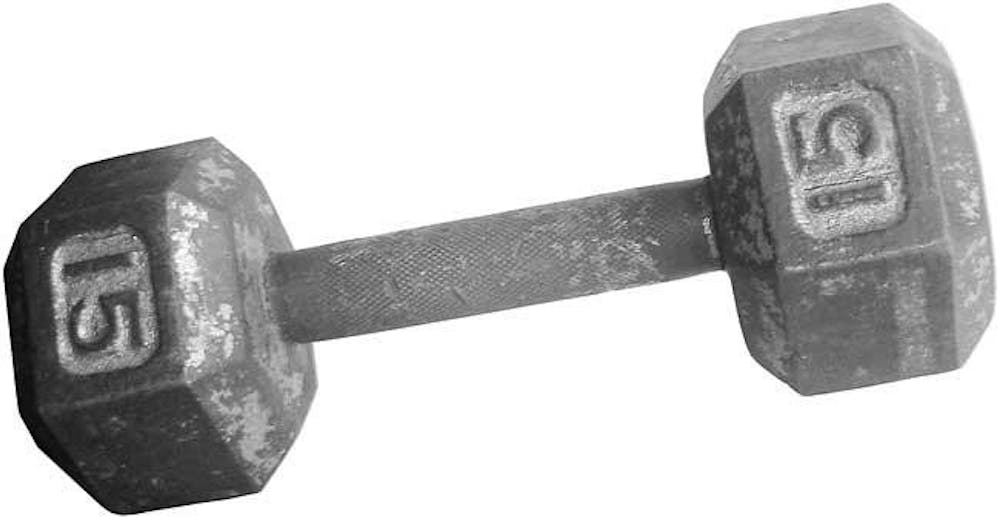This time of year many students are rushing to shed a few extra pounds before the holidays. But some might be hurting themselves in the process.
Whether to compensate for unhealthy eating habits, cope with stress or meet society’s standards for body image, experts say more and more people are exercising compulsively.
A feature of bulimia nervosa, this disorder often comes with unwanted baggage.
“They typically have other symptoms at the same time,” said Chris Meno, a psychologist with the IU Health Center’s Counseling and Psychological Services.
“These include dieting, purging, using laxatives, feeling guilty and shameful about food intake and having a poor body image.”
The pressure to attain a certain body image is circulated throughout society, but it can be dangerous, Meno said.
“Society has more recently focused on weight loss and attaining a narrowly defined and often unrealistic body type,” she said. “This has likely lead more men and women to use exercise to change their bodies.”
This “ideal body image” is entirely different for men and women. Most women who over-exercise do so in an attempt to be thinner. Men, however, over-exercise in order to be muscular and toned.
Sophomore Tyler Hamill, an employee at the Student Recreational Sports Center, said he thinks compulsive exercising isn’t apparent at IU.
“I’ve heard the term ‘bigorexia’ where you think you’re never big enough, but I don’t see people like that here,” he said. “People here seem more interested in keeping off the ‘Freshman 15.’”
Hammil thinks that most gym-related health problems stem from a lack of patience.
“Around spring break you see people trying to get jacked within a week, and it doesn’t work like that,” he said.
Junior Jon Showalter spent a lot of time exercising during the summer. During his time at the gym he observed apparently unhealthy exercise habits.
“I always saw two or three girls that didn’t look healthy at all,” he said. “They would be on the treadmill for hours at a time.”
Showalter doesn’t see over-exercising as an immediate threat to the student body as a whole, but cautions against apathy.
“I don’t know if it’s becoming an epidemic or anything, but I think eating disorders are always a problem,” he said.
Although students might be acquainted with someone who they think is too thin or muscular, Meno points out that this disorder is not defined by weight. Someone exercising excessively could appear to be at a completely normal weight, she said.
The real determining factors for this disorder lay in the habits and actions of a person. Exercising when injured, ill or in pain all indicate over-exercising. Skipping other events in order to exercise and feeling guilty when missing a workout are also signs of the disorder, Meno said.
If a student knows someone they think might be compulsively exercising, the first step is knowledge.
“Educate yourself about eating disorders and over-exercise,” she said. “Many people don’t realize that they have misconceptions until they educate themselves.”
Friends and family should then approach the person in a direct, straight-forward manner. Although expressing concern for the person’s well-being is important, accusations could only make things worse.
“Do not try to convince him or her that they have an eating disorder,” Meno said.
“Suggest the person seek assessment with a trained exercise specialist, physician or counselor.”
OVER EXERCISE
The new eating disorder

Get stories like this in your inbox
Subscribe





